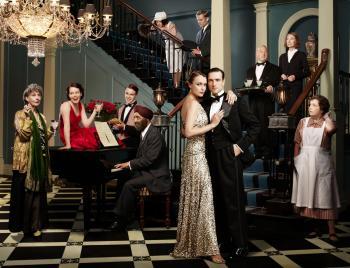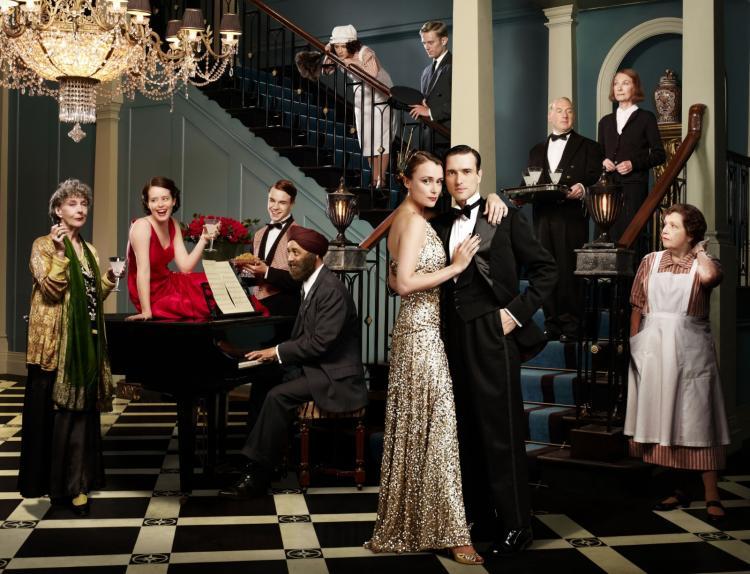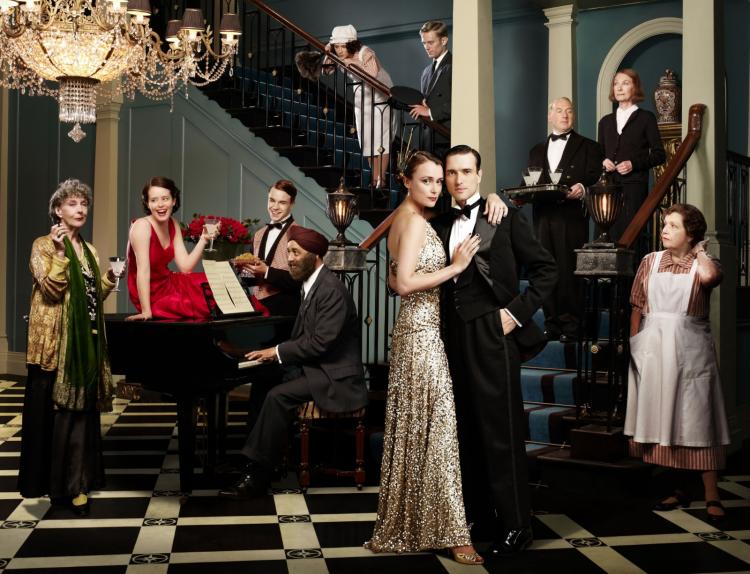Television Review: ‘Upstairs, Downstairs’
The year 1936 will be a difficult year for the British Empire. The economy is stagnant, fascism is sweeping Europe, and a scandal will soon rock the Royal Family. The effects of these grand historical events will be felt by the new owners of 165 Eaton Place.

UPSTAIRS DOWNSTAIRS: An updated version of the series from the 1970s, 'Upstairs Downstairs'.(L-R) Eileen Atkins as Lady Maud Holland, Claire Foy as Lady Persie, Nico Mirallegro as Johnny Proude, Art Malik as Amanjit Singh, Ellie Kendrick as Ivy Morris, Neil Jackson as Harry Spargo, Keeley Hawes as Lady Agnes Holland, Ed Stoppard as Sir Hallam Holland, Adrian Scarborough as Mr. Pritchard, Jean Marsh as Rose Buck, and Anne Reid as Mrs. Thackeray. Courtesy of BBC Masterpiece
|Updated:
Joe Bendel writes about independent film and lives in New York City. To read his most recent articles, visit JBSpins.blogspot.com
Author’s Selected Articles





